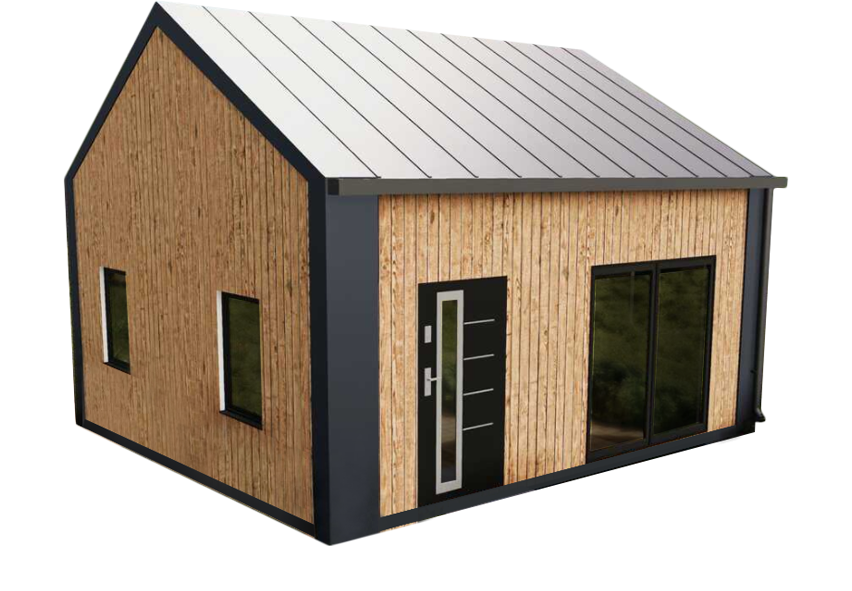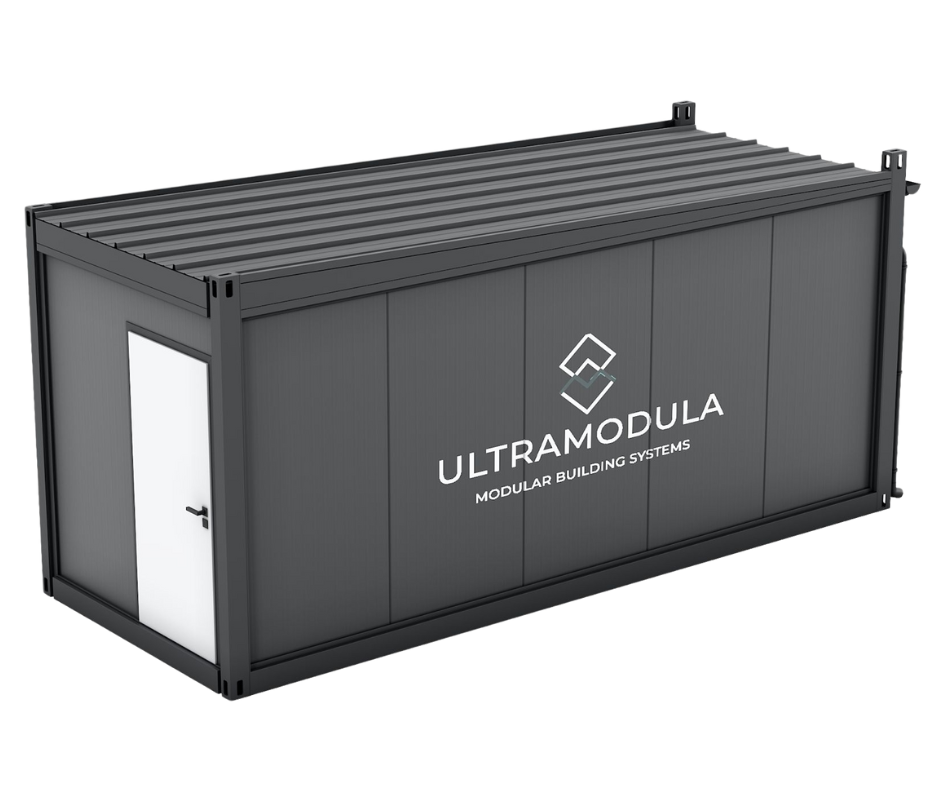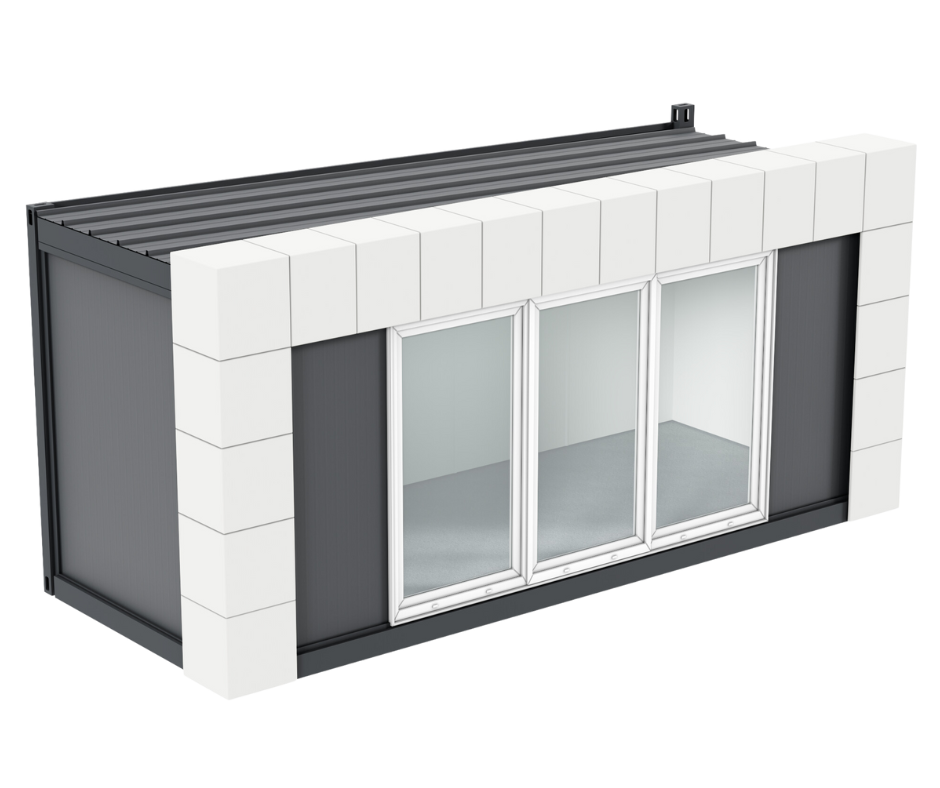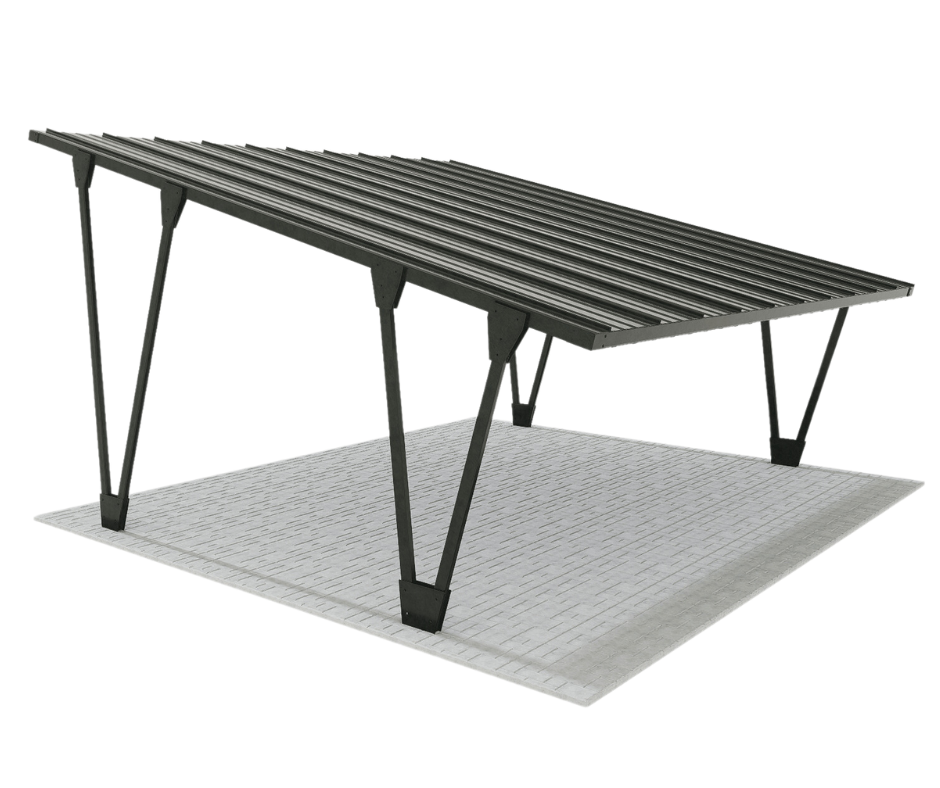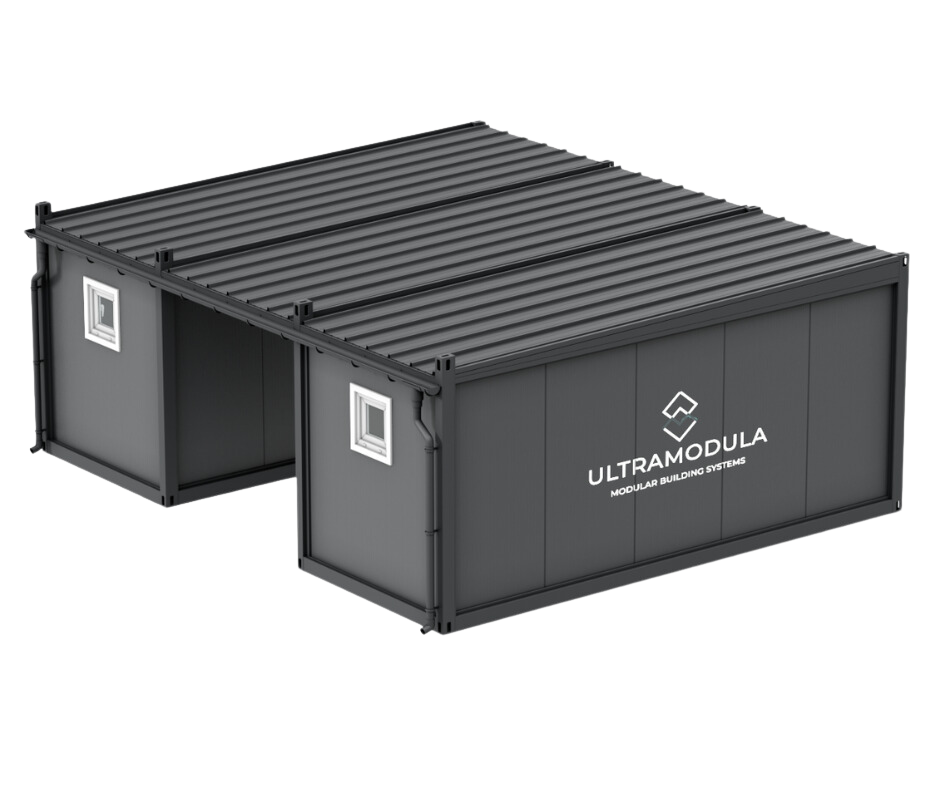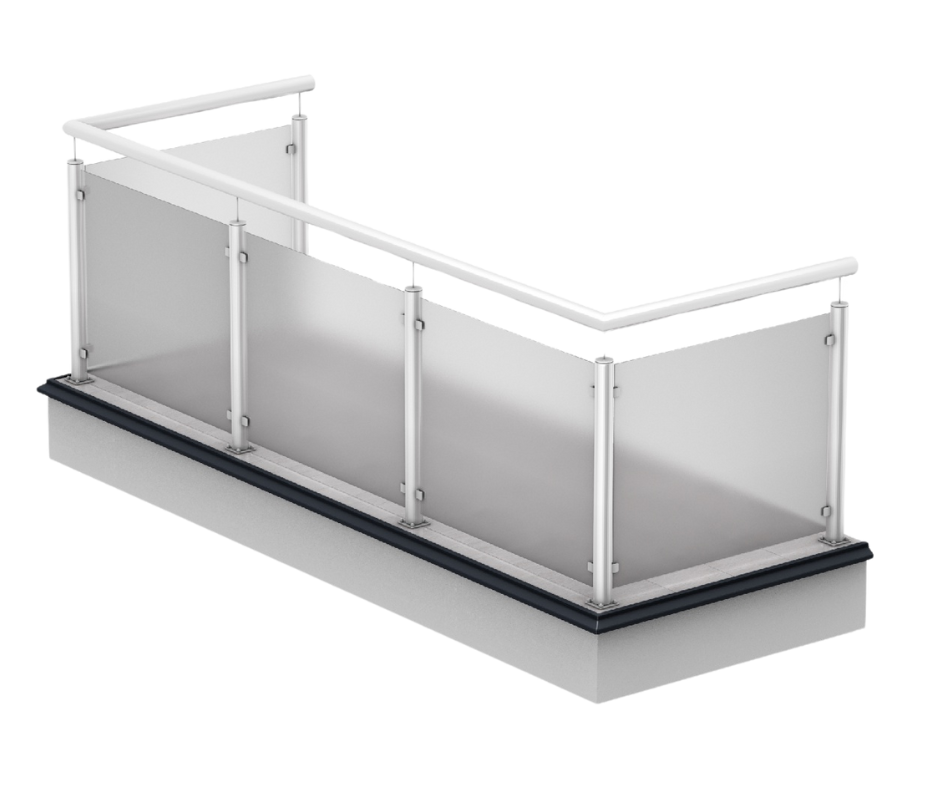
New perspectives in use containers - Containers offices construction | ultramodule.com
Containers, long a key element in the transport and logistics industry, are becoming more and more widely used in various fields. They are not only used to transport goods, but also become an integral part of modern construction, residential and commercial solutions. One of the innovative practices of using containers is combining them into structures of various dimensions and configurations, which opens up new possibilities in space design.
Stacking and expanding containers
Traditionally, containers were mainly used in single-layer systems, where each of them was a separate element. However, the growing demand for flexible and modular solutions prompted experiments with stacking and connecting containers vertically and horizontally.
Stacking containers
Stacking containers opens new perspectives in the use of available space. By placing one container secondly, the efficiency of land use can be increased. For example, in residential construction, stacked containers can be a quick and inexpensive solution to housing needs in areas with limited availability of construction land.
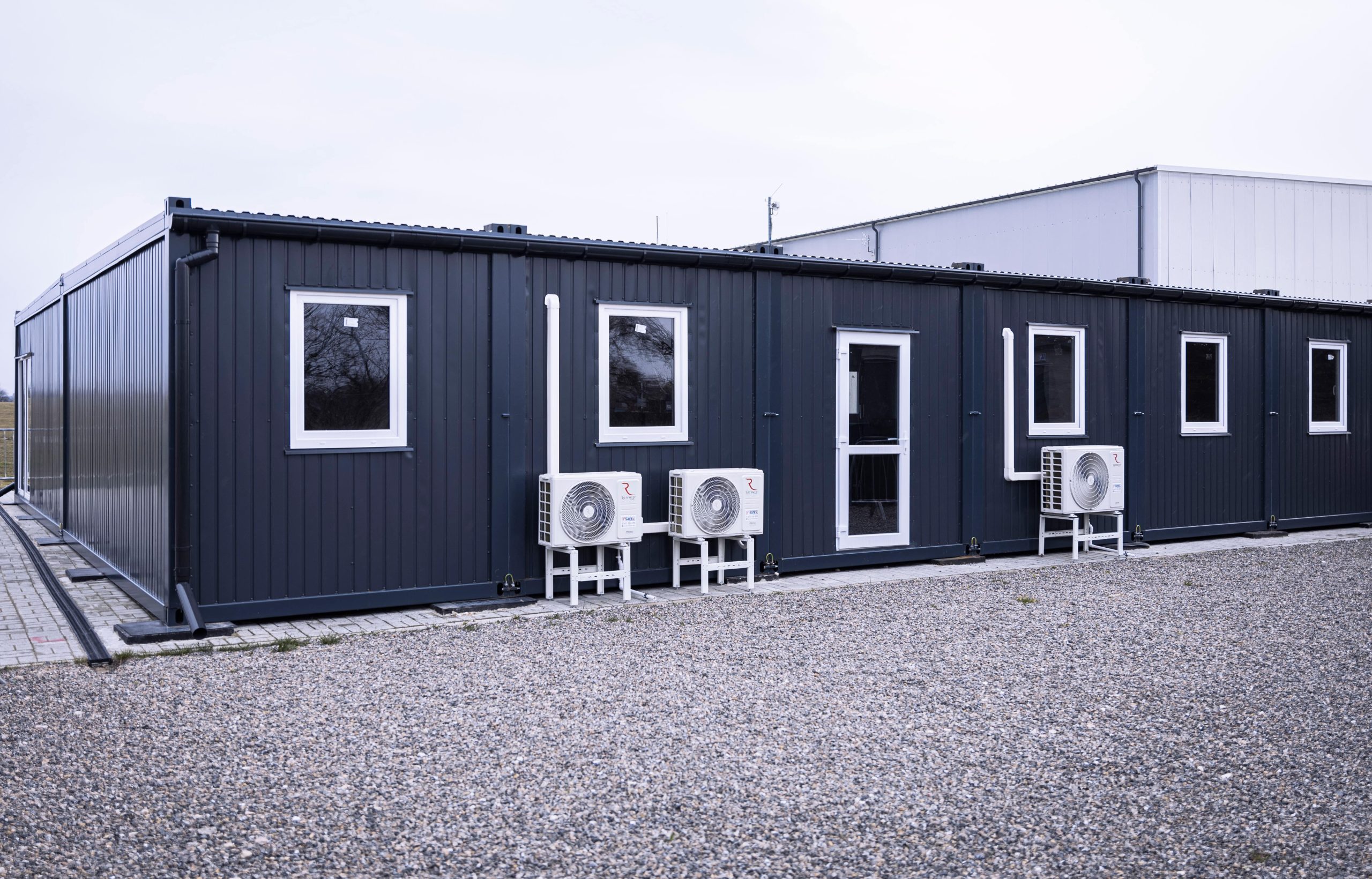
Offices container | Ultramodule
Expansion of containers horizontally
Expanding the containers horizontally allows you to create wide and spacious spaces. By connecting many containers next to each other, you can create larger rooms that can be used as offices, warehouses or commercial spaces. Such solutions are not only quick to build, but also easy to modify and expand in the future.
Configurable
One of the key advantages of using containers is their flexibility in configuration. Containers can be adapted to various needs and requirements, both in terms of functionality and aesthetics.
functionality
Containers can be adapted to various applications, e.g. by adding windows, doors, thermal insulation or ventilation systems. Thanks to this, they can be used as a residential, office, commercial or even educational space.
Aesthetics
Containers can also be customized in terms of external appearanceto fit into the surroundings or meet certain aesthetic standards. By using different colors, finishing materials and decorative elements, you can give them a unique character.
Connecting containers vertically and horizontally and the possibility of their configuration open up new possibilities in space design. Flexibility, speed of construction and relatively low costs make containers an increasingly attractive alternative to traditional construction solutions. As technology and innovation continue to develop, we can expect even wider use of containers in various areas of life.

